Social media is an invaluable tool for real estate agents. It can help you grow and nurture your network, the most valuable asset in your career. But each platform has its own pros and cons, and not all of them will benefit your real estate business.
What Social Media Platform Is Best for Real Estate?
There are countless real estate social networks. However, only a few have robust enough features and large enough user bases to be effective for real estate marketing. These are the top platforms that real estate agents should take advantage of:
Facebook tops this list not just because it has the most users out of all the social media platforms. It’s also because Facebook has diverse marketing tools that make it easy for real estate agents to find potential clients.
You can grow your network organically by creating an attractive profile page. You can also use Facebook Events and Groups to foster community and invite people to open houses and gatherings.
Facebook Messenger is another handy tool. It’s a personal way to get in touch with clients without the anxiety of phone calls.
If you want faster results, you can go the paid route and run Facebook ads to target your desired audience. Facebook lead ads are another option.
Facebook will automatically sync the generated leads with your CRM platform, or you can download the data as a .CSV file. Following up with leads will be much easier, bringing you one step closer to closing deals.
Facebook is a baby boomer app, but that’s not necessarily bad. Gen Zs might not think it’s cool, but 50% of social media activity in the U.S. happens on Facebook.
The platform also offers excellent market penetration, with 72% of adults in the U.S. logging on at least once daily. In addition, Facebook’s user demographic is ideal for real estate marketing, with most users within the 25 to 65 age range.
Looks play a massive role in real estate marketing. That’s why Instagram is the perfect platform to pique people’s interest.
You can use this visual app to get creative with your promotions. You can post BTS footage of open houses, alluring photos of the neighborhood, and intriguing teasers for upcoming listings.
Another benefit of using Instagram is its ties to Facebook. You can manage your content on both platforms from one place.
You also get access to all of Facebook’s robust advertising tools and helpful metrics. It’s easy to get your posts in front of the right people and measure the performance of your campaigns.
While Facebook is for more mature audiences, Instagram lets you tap the young, design-driven homebuyers. 32% of its users are between the ages of 25 and 34 and are highly engaged.
59% of Instagram users log on daily, while 80% are on the app at least once a week. The downside to Instagram is that many users are still too young to be interested in real estate, so you can’t leverage its full potential.
YouTube
YouTube is the only platform that lets you post long-form videos, giving real estate agents a unique advantage.
Not only can you dazzle your audience with high-quality footage of your listings, but it’s also an opportunity to position yourself as an industry expert. You can use YouTube to share educational real estate content, engaging your audience with helpful insights and earning their trust.
Some may argue that YouTube isn’t a social network, but content creators on the platform enjoy high engagement rates. If you do it right, you can compel your subscribers to like and comment on your videos, connecting with you and each other.
Also, viewers on the platform spend around 20 minutes per visit, doubling Facebook’s average.
That gives you plenty of time to grab people’s attention. If you have a blog, you can showcase your YouTube videos there with a link back to your channel. That will help drive in more traffic.
There are plenty of features to leverage on the platform. You can use YouTube Live and Premier to establish rapport with viewers in real time. There’s also a community tab that lets you interact directly with your subscribers.
You can update them on your projects and ask for their feedback through polls. However, you’ll need to invest more time and effort into YouTube because you compete with highly skilled content creators.
LinkedIn may not be the place to advertise your listings, but it’s the perfect platform for networking. LinkedIn users are there for a specific purpose: to build professional connections. And real estate agents can use that to their advantage.
LinkedIn will help connect you to other professionals like appraisers, mortgage lenders, and home inspectors. You can even build rapport with other agents.
These connections will help move you forward in your real estate career, giving you multiple sources of knowledge and help. You can share leads and swap listings with those who might be interested.
But LinkedIn isn’t just for finding professional contacts. It can help you land new clients, too. LinkedIn surprisingly beats other social media platforms in lead conversion, boasting an impressive 2.74% rate.
That’s three times more than Facebook’s and X’s. In addition, many LinkedIn users are in senior positions with connections to other high-income professionals. That’s easy access to potential clients and referrals.
Pinterest is different from other social networks. Instead of personal updates and news stories, Pinterest is for ideas, hobbies, and interests. It’s a discovery platform where people find inspiration and learn new things, with 85% of users saying they use it to plan new projects.
How is that relevant to real estate agents? Many Pinterest users are interested in homeownership and are looking for ideas for their dream homes. In fact, 43% of users say they plan on buying a home in five years.
You can use the platform to showcase your expertise in real estate, home decor, and curb appeal and get discovered by interested users. While you can’t post your listings, you can catch the right people’s attention in other ways.
What’s great about Pinterest is that your ideas are evergreen, so users will keep seeing them. Facebook and Instagram posts have much shorter lifespans, only relevant for a day or two. You can also use Pinterest to direct leads to your blog, where they can find more information about your business.
TikTok
TikTok is currently the trendiest social media platform, entertaining users with dance challenges, comical skits, and trippy videos.
Is there room for real estate agents in this fun and creative space? Most definitely! Like Pinterest, TikTok is a content discovery app. You can use it to share out-of-the-box ideas and get in front of interested users.
However, most TikTok users are Gen Z and are too young to invest in real estate. But they’ll soon come to the right age with incredible purchasing power, and you’ll be glad to have their attention. Also, TikTok’s popularity is steadily growing, attracting more millennials and baby boomers.
TikTok requires a high level of quality and originality. Simply posting your listings will get you nowhere. It’s a challenge for real estate agents to get creative. You can show off before and after photos if you like flipping houses.
You can also film aspirational home tours to give viewers a peek into beautiful properties. Whatever you do, stay away from sales-y pitches.
X
X, formerly called Twitter, is perfect for keeping up with real estate industry news. Thanks to its advanced search and list features, it’s easy to discover helpful real estate accounts and organize the information you find.
But can X help you grow your business? While it may not be for lead generation, there are still ways to work it into your marketing strategy and build your following.
You can boost your engagement on the platform by incorporating photos, videos, and GIFs. In addition, repost relevant content regularly to improve your visibility on the platform.
You can also post questions to start conversations and connect with your audience. With X, you know you’re tapping the correct age group, as 50% of its users are between 25 and 49.
It can be advantageous to find your footing on X early on. Elon Musk has big plans, and X might soon be an all-in-one communications and financial platform like WeChat. You’d want to have an established presence when that happens.
ActiveRain
LinkedIn is great for networking, but ActiveRain can provide a more streamlined experience. It’s specifically for real estate professionals, making it easier to connect with like-minded individuals.
You can build a solid network of mortgage brokers, appraisers, and other professionals in your industry. The platform has a referral system, too, allowing real estate agents to share clients.
NextDoor
NextDoor is a community-building platform that connects individuals within a neighborhood. Neighbors can support each other’s businesses, get recommendations, and receive updates from local agencies. Real estate agents can use it to tap their local real estate market and find leads. All users are verified, so you’re working within a secure environment.
How to Choose the Best Social Media Platforms for Your Real Estate Marketing Campaigns
Real estate agents think they must grow a social media presence on all platforms. But that’s counterproductive.
You’ll spend too much time online, distracting you from your real estate business. Also, dividing your efforts across several platforms will hinder you from growing an audience on any of them.
Instead, it’s more effective to narrow it down to three social media platforms and cross-promote your campaigns. You’ll generate more leads and revenue with a more focused strategy.
Here are some tips to help you select the best channels for your real estate social media marketing campaigns:
Know Your Target Audience
Before deciding on a social media platform, identify your target audience. Successful real estate marketing all starts with a niche. Are you trying to appeal to young, first-time homebuyers?
Or do you want to sell property to luxury home shoppers? Gather information about your target audience, including age, income, and location. You can then use their demographics to select the most suitable platforms.
Research on User Statistics
Take a hard look at user statistics when choosing a social media platform for your marketing strategy. Fortunately, all platforms have their numbers up publicly, so they should be easy to access. Here are some of the figures you should research on:
- Total number of users
- Number of engaged users or engagement rate
- The average age of users
- The average income of users
- Number of users in your area
- Interest in real estate among users
Real estate professionals can’t go wrong with Facebook because most users are baby boomers and millennials. These people are interested in real estate and have the income to invest.
As for TikTok users, they’re too young to make big life decisions now, but it’s still worth connecting with them. They’ll soon be homebuyers, and you’ll want to be their top-of-mind real estate agent when the time comes.
Consider Ease of Use
A platform may have robust tools and features, but they’re only beneficial if you know how to leverage them for real estate marketing. If a platform is complicated, you’ll waste too much time figuring out how things work.
Facebook and Instagram are user-friendly options. Posting content and running ads are straightforward, and you can easily track your performance.
TikTok also offers plenty of beginner-friendly tools, letting you create fun and engaging content in minutes.
On the other hand, YouTube is more challenging and time-consuming because you need filming and editing skills. You also need technical knowledge to live-stream on the platform.
Use Social Media Strategically
Getting hundreds of likes isn’t the point. Nor is it to rack up thousands of followers. Social media for real estate agents should be about driving revenue for your business.
Instead of getting too wrapped up in the numbers, focus on generating leads, nurturing relationships, and closing deals. Be strategic with your social media usage and ensure it’s benefiting your business.













